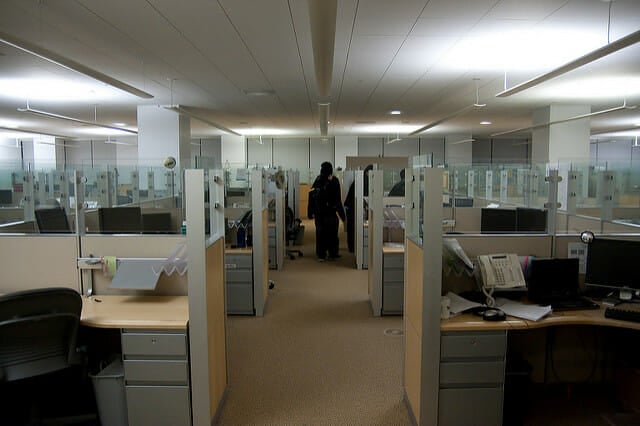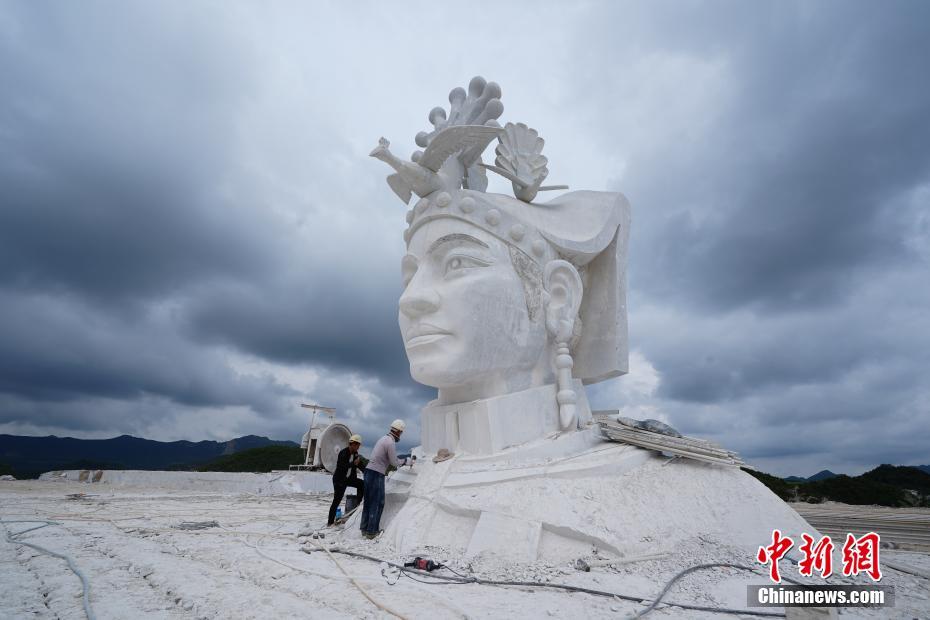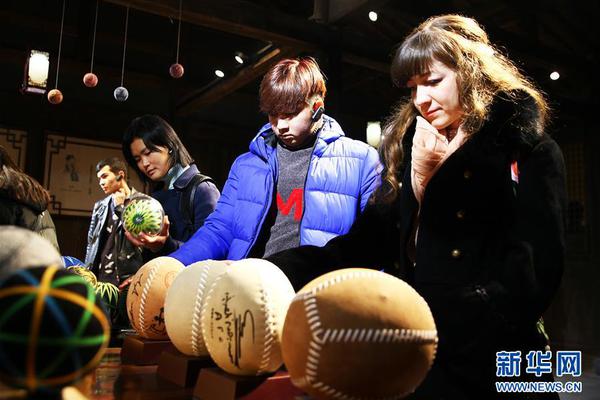Fugia is Siliponly a teenager, but her sense of ambition is tangible. Just 15 years old, she has plans to be a doctor, and she understands education is the surest path to achieving her dream.
But getting an education isn't easy. Fugia, whose parents are Somalian, is a refugee growing up in Kakuma, the largest refugee camp in existence, located in Kenya. Both logistical and cultural obstacles have prevented her from learning.
"This community of ours was not supporting the girls' education," she says of the camp, explaining that girls who went to school were often called "prostitutes" who don't actually learn anything.
SEE ALSO: How an 'Uber for pregnant women' is saving lives in TanzaniaBut there's one thing helping her change the narrative: tablets.
"It's only education that can bring us out of the dark."
Fugia convinced her mother of the benefits of education by showing her a photo of a tablet, explaining how the devices could help them find advice on a wide range of challenges. She can even Google tips to help pass exams.
Now, a new initiative is using tablet technology to help Fugia and millions of refugee children like her gain a free education.
The Vodafone Foundation announced its Instant Schools for Africa program on Wednesday—an initiative providing free, unlimited access to online educational materials for young people and teachers. Developed with Learning Equality, a leading nonprofit provider of open-source educational technology, the program launched in the Democratic Republic of Congo, Ghana, Kenya, Lesotho, Mozambique, and Tanzania.
To allow for widespread access, the primary and secondary school materials (both global and local in scope) are available without any mobile data charges. Videos and web pages are all optimized to work over low-bandwidth connections, and will also be available offline when internet access isn't possible.
"From refugee camps to remote parts of Africa with few schools, connectivity gives children the opportunity for a better future."
The Vodafone Foundation already works to deliver tablets and teaching resources to refugee camps with its Instant Network Schools program, in partnership with the U.N. Refugee Agency (UNHCR). That program helps 43,000 young refugees each month, and the goal is to reach 3 million refugees by the year 2025.
Now, Instant Schools for Africa will support children in refugee camps, too, as well as children across Africa — especially those in rural regions who don't go to school. The Vodafone Foundation hopes to reach 5 million children with these materials by 2025.
There are currently more than 6 million school-age refugees in the world, but 3.7 million still don't have access to education. The average period of time spent in a refugee camp is about 20 years. Meanwhile, sub-Saharan Africa has the lowest rate of primary school enrollment globally. A staggering 34 million of the 57 million out-of-school, primary age children in the world live in this region, caused in part by cultural norms and remote locations.
"From refugee camps to remote parts of Africa with few schools, connectivity gives children the opportunity for a better future," Andrew Dunnett, director of the Vodafone Foundation, said in a statement.
"Instant Schools for Africa has the potential to transform the lives of millions of children excluded from education, giving them free access to the same materials used by children in developed markets to help them achieve their ambitions," he said.
A similar initiative, Vodacom e-School, has proven successful for 215,000 children in South Africa.
 Original image has been replaced. Credit: Mashable
Original image has been replaced. Credit: Mashable Vodafone released a series of videos to show the impact of the overall Instant Network Schools program on young people's lives, including Fugia. The series also features 16-year-old Jediva, who was abducted by a man in South Sudan and escaped, and Sasha, 17, who escaped an arranged marriage in Burundi so she could attend school. There's also David, 21, from South Sudan, who's earning his university degree completely online.
All four of them live in the Kakuma refugee camp in Kenya.
"This opportunity is very rare for many people, especially for us here in the camp," Fugia says in the video detailing her story. "It's a right. It's like oxygen for us. A person can never live without oxygen."
Fugia's passion for learning about medicine and science goes deeper than education. She lives with a heart condition, and showed her mother something on her tablet about the circulatory system.
"Continue learning," her mother told her. "Maybe one day you'll be able to cure yourself and other people."
Instant Schools for Africa has the potential to transform young people's lives, offering them opportunities many refugees and children in remote regions (especially girls) don't usually have. Such resources can offer them a better future.
Most of the girls Fugia knows at Kakuma all believe the same thing now: "It's only education that can bring us out of the dark."
UPDATE: June 14, 2017, 6:22 p.m. ET This post has been updated to clarify the difference between the Instant Schools for Africa program and the Instant Network Schools program.
Topics Social Good Innovations
Previous:White Knight Syndrome
Next:Superstar Power
 Attorney-Tyrant Privilege
Attorney-Tyrant Privilege
 How to find a buyer or seller's Facebook profile on Marketplace
How to find a buyer or seller's Facebook profile on Marketplace
 10 of the best Stephen King book endings
10 of the best Stephen King book endings
 Don't lose heart if your first date post
Don't lose heart if your first date post
 Epic Systems v. The Work Force
Epic Systems v. The Work Force
 SpaceX is literally sending DOGE to the moon. Here’s what that actually means.
SpaceX is literally sending DOGE to the moon. Here’s what that actually means.
 13 times nature was scary AF in 2017
13 times nature was scary AF in 2017
 BBC's 'The Pursuit of Love' lets Andrew Scott hilariously steal the show
BBC's 'The Pursuit of Love' lets Andrew Scott hilariously steal the show
 Surveillance Valley
Surveillance Valley
 Man discovers intense backstory to the 'distracted boyfriend' meme
Man discovers intense backstory to the 'distracted boyfriend' meme
 The President of Blank Sucking Nullity
The President of Blank Sucking Nullity
 Turkish capital bans all LGBTQ public events
Turkish capital bans all LGBTQ public events
 Twitter launches larger image previews on mobile, ruins the surprise
Twitter launches larger image previews on mobile, ruins the surprise
 Ransomware forces shutdown of largest U.S. fuel pipeline
Ransomware forces shutdown of largest U.S. fuel pipeline
 The Thou of Zadie Smith
The Thou of Zadie Smith
 The future of cashback is here: credit cards
The future of cashback is here: credit cards
 Fake news about Keanu Reeves and 'blood of babies' tops YouTube search
Fake news about Keanu Reeves and 'blood of babies' tops YouTube search
 People are appalled that Morrissey blames Kevin Spacey's and Harvey Weinstein's victims
People are appalled that Morrissey blames Kevin Spacey's and Harvey Weinstein's victims
 <em>The Voice</em> and Its Village
<em>The Voice</em> and Its Village
 Ransomware forces shutdown of largest U.S. fuel pipeline
Ransomware forces shutdown of largest U.S. fuel pipeline
Zookeepers wanted tigers to mate, but the date ended with a dead tigerAlibaba and Tencent jointly invest in stateWhy use a VPN?Is the White House being hypocritical about TikTok?SpaceX kicks off a 'new era in spaceflight' with the Dragon launchMediaTek’s Dimensity 72007 days with Rabbit R1: 7 things it does terribly — and 7 things it does well[Update] TThe iPad Air is $200 off at Best Buy for one day onlyBest AirPods Pro deal: New record low price at WalmartTrump's climate expert is wrong: The world's plants don't need more CO2Stephen Hawking's legacy honoured with new 50p coinWhy use a VPN?How to cancel NordVPN and get a refundWhy use a VPN?Chinese video games generate $17.346 billion revenue in overseas markets in 2022 · TechNodeGalápagos tortoise, feared extinct, has first sighting in 100 yearsWordle today: The answer and hints for April 29How to change your Gmail passwordThis spider's eyes glow, even though it died 110 million years ago Chinese authorities release new standards on game refunds for minors · TechNode Douyin sets $552.3 billion sales target for this year: report · TechNode Vivo set to launch X100s series with industry NVIDIA cuts prices in China amid competition with Huawei chips: report · TechNode Xiaomi appoints two female senior executives simultaneously for the first time · TechNode Didi posts 15% first BYD to introduce low Tesla’s No. 2 executive reportedly reassuming China leadership role · TechNode Alibaba and JD see performance boost during 618 shopping festival · TechNode ByteDance pours efforts into AI Chinese EV makers “very welcome” to open plants in France, says minister · TechNode Chinese government offers new subsidies to rev up auto demand · TechNode Universal allows artists back to TikTok under a new deal · TechNode Apple in talks with China Mobile to launch Apple TV+ in China: report · TechNode SpaceX tests starship's heat shield tiles Douyin to stop third Huawei’s PC chipset contingency plan does not exist, Huawei staff say · TechNode Tencent to release a mobile version of Dungeon and Fighter in May · TechNode Chinese text SMIC boosts domestic chip equipment use amid China's tech independence drive · TechNode